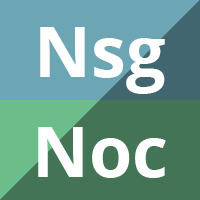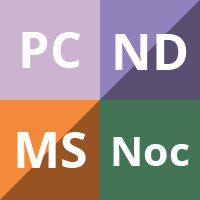
Interventions for the management of fatigue in adults with a primary brain tumour
Abstract Background Fatigue is a common and disabling symptom in people with a primary brain tumour (PBT). The effectiveness of interventions for treating clinically significant levels of fatigue in this population is unclear. Objectives To assess the effectiveness and safety of pharmacological and non-pharmacological interventions for adults with PBT and high levels of fatigue. Search […]

Buprenorphine for neuropathic pain in adults
Abstract Background Opioid drugs, including buprenorphine, are commonly used to treat neuropathic pain, and are considered effective by some professionals. Most reviews have examined all opioids together. This review sought evidence specifically for buprenorphine, at any dose, and by any route of administration. Other opioids are considered in separate reviews. Objectives To assess the analgesic […]

123I-MIBG scintigraphy and 18F-FDG-PET imaging for diagnosing neuroblastoma
Abstract Background Neuroblastoma is an embryonic tumour of childhood that originates in the neural crest. It is the second most common extracranial malignant solid tumour of childhood. Neuroblastoma cells have the unique capacity to accumulate Iodine-123-metaiodobenzylguanidine (¹²³I-MIBG), which can be used for imaging the tumour. Moreover, ¹²³I-MIBG scintigraphy is not only important for the diagnosis […]

Positioning and spinal bracing for pain relief in metastatic spinal cord compression in adults
Abstract Background This is an updated version of the original Cochrane review published in Issue 3 (Lee 2012) on patient positioning (mobilisation) and bracing for pain relief and spinal stability in adults with metastatic spinal cord compression. Many patients with metastatic spinal cord compression (MSCC) have spinal instability, but their clinician has determined that due […]

Interventions for the treatment of metastatic extradural spinal cord compression in adults
Abstract Background Metastatic extradural spinal cord compression (MESCC) is treated with radiotherapy, corticosteroids, and surgery, but there is uncertainty regarding their comparative effects. This is an updated version of the original Cochrane review published in theCochrane Database of Systematic Reviews (Issue 4, 2008). Objectives To determine the efficacy and safety of radiotherapy, surgery and corticosteroids […]

Nutritional support in children and young people with cancer undergoing chemotherapy
Abstract Background It is well documented that malnutrition is a common complication of paediatric malignancy and its treatment. Malnutrition can often be a consequence of cancer itself or a result of chemotherapy. Nutritional support aims to reverse malnutrition seen at diagnosis, prevent malnutrition associated with treatment and promote weight gain and growth. The most effective […]

Multidisciplinary rehabilitation after primary brain tumour treatment
Abstract Background Brain tumours can cause significant disability, which may be amenable to multidisciplinary rehabilitation. However, the evidence base for this is unclear. This review is an update of a previously published review in the Cochrane Database of Systematic Reviews [2013, Issue 1, Art. No. CD009509] on ‘Multidisciplinary rehabilitation after primary brain tumour treatment’. Objectives […]

Pharmacological treatments for fatigue associated with palliative care
Abstract Background This review updates the original review, ‘Pharmacological treatments for fatigue associated with palliative care’ and also incorporates the review ‘Drug therapy for the management of cancer-related fatigue’. In healthy individuals, fatigue is a protective response to physical or mental stress, often relieved by rest. By contrast, in palliative care patients’ fatigue can be […]

Chemotherapy for children with medulloblastoma
Abstract Background Post-surgical radiotherapy (RT) in combination with chemotherapy is considered as standard of care for medulloblastoma in children. Chemotherapy has been introduced to improve survival and to reduce RT-induced adverse effects. Reduction of RT-induced adverse effects was achieved by deleting (craniospinal) RT in very young children and by diminishing the dose and field to […]

Interventions for preventing and ameliorating cognitive deficits in adults treated with cranial irradiation
Abstract Background Cognitive deficits are common in people who have received cranial irradiation and have a serious impact on daily functioning and quality of life. The benefit of pharmacological and non-pharmacological treatment of cognitive deficits in this population is unclear. Objectives To assess the effectiveness of interventions for preventing or ameliorating cognitive deficits in adult […]

